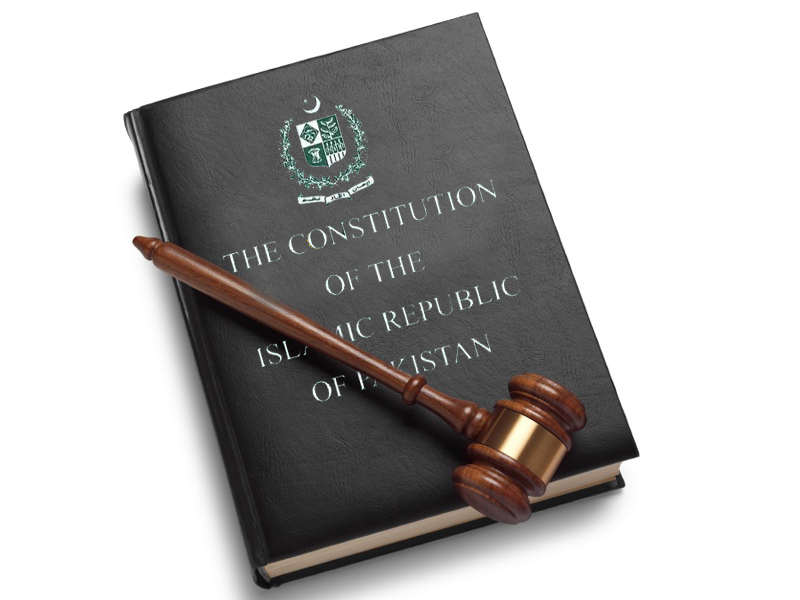

The 21st Amendment Bill, passed by parliament on January 6, adds to this process. By setting up military courts, the principle of the executive and judiciary existing as separate entities has been essentially violated. The military, after all, is an extension of the executive and should be operating under it. Handing over a judicial function to it carries some inherent dangers, mainly because they violate the constitutionally-sound principle of separation of powers and checks and balances.
We understand that the judicial system has, in many ways, failed. It has not been able to deliver the justice people seek and require, with long delays plaguing the smooth working of courts, notably at the lower level. It is also true that both judges and witnesses are too afraid to act as they should. But then it is these problems that should have been tackled rather than taking away powers and setting up military courts, which will be run by military officers not necessarily suited or trained for the delicate role of meting out justice to citizens.
For justice to be effective, it must be impartial and seen as such by people on the whole. When this does not happen, and there is risk that this may not happen, the whole purpose of the system is defeated. What we also need is a well-worked out plan to combat militancy, both with a short- and a long-term time frame. This, after all, must be our final goal. There is no reason at all to believe that military courts, which will remain in place for two years, can solve this problem. This challenge looks set to remain just as enormous as ever before after this period is over. What was most urgently needed was a review of the factors that contribute to militancy, so that these could be tackled.
The growth of extremism stems from many sources. These include clerics spewing hate speech, who remain free to spread their message, seminaries responsible for inculcating a certain ideology, sections of the media and also the illiteracy and poverty that stalk our country. These factors needed to be combated too. And for the future, what was also required was a restructuring of our criminal justice system, enabling it to deliver in terms of investigation and the trial process itself. There has been no evidence at all of any serious attempt to look at these issues or determine what problems the judicial system faces in its attempt to perform its role.
There is every reason to fear the military courts now established will do more harm than good. Yes, it is possible, indeed probable, that cases will be decided more quickly than was previously the case. While speedy disposal of cases is a good thing, we still need to ensure that in our quest for quick decisions on cases, justice is not compromised in any way and that there is minimal risk of error and of miscarriage of justice. This can only play into the hands of the militants and the outfits that back them. Besides, what happens after two years, when the time period runs out? Are we to presume that in two years, the normal courts will be in a position to deal with such cases in an effective manner?
It is unfortunate that all these factors were not taken into account and instead power has been handed over to the military, essentially by an elected civilian set-up, which perhaps lacked the resolve to tackle the immense challenge at hand and instead chose to hand over responsibility for this to the military, ignoring the lack of constitutional provision for this.
Published in The Express Tribune, January 8th, 2015.
Like Opinion & Editorial on Facebook, follow @ETOpEd on Twitter to receive all updates on all our daily pieces.
COMMENTS (1)
Comments are moderated and generally will be posted if they are on-topic and not abusive.
For more information, please see our Comments FAQ












I read the article,it emphasizes on the restructuring and active functioning of the judicial system but we are actually not facing the failure of our judicial system,we are in fact lacking an effective process of trial against specifically the terrorist criminals and they were, on way or the other being benefited by the slow, lenient original judicial system.The need of the time is the strict check and action upon them and inflicting serious measures to stop them what they are carrying out;for this military courts are a need of time where witnesses and punishment implementation process would be assured and protected.And for the long-term prosperity of our country we have to underpin this sui generis amendment.